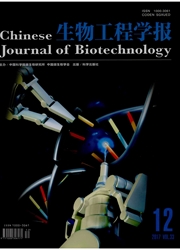

 中文摘要:
中文摘要:
聚N-异丙基丙烯酰胺(poly(N-isopropylacrylamide),PNIPAAm),温敏性聚合物,可利用其温敏特性替代酶类物质或细胞刮刀用于贴壁细胞的收获,从而有效避免酶解和机械损伤,可为生物医药领域提供品质优良的种子细胞。重点阐述促进细胞有效粘附和快速脱附的温敏性PNIPAAm二维平面的研发情况,包括选取特殊基材、引入亲水基团、调节反应物比率、控制聚合物厚度/密度、提供适宜外力等方式,从而有效改善细胞对温敏性平面的适应性并降低染菌风险以及减少低温处理对细胞的影响。同时介绍PNIPAAm微载体、支架和凝胶等温敏性三维培养介质的研究进展,此方式不仅增加细胞生长面积,更可以模拟体内微环境,从而保持细胞原始生理特征,同时实现大规模扩增和非酶解收获细胞以及组织器官修复和重构的目标。最后简单说明PNIPAAm培养平台的应用,PNIPAAm的研发为再生医学的发展提供了崭新思路。
 英文摘要:
英文摘要:
Poly(N-isopropylacrylamide)(PNIPAAm), a temperature-responsive polymer, can be potentially applied to replace enzymes or cell scrapers to recover attached cells. Taking full advantage of this unique function of PNIPAAm, cells can be protected from enzymatic hydrolysis and mechanical treatment, thereby to provide ideal seed cells with high quality for biomedical fields. In this review we describe the method to facilitate cell effective adhesion and rapid detachment on thermoresponsive two dimensional surfaces, including selecting special substrate, introducing hydrophilic group, adjusting reactant ratio, controlling polymer thickness/density, providing appropriate external force, so as to effectively improve adherent cell adaptability to thermoresponsive surfaces, depress the risk of bacterial contamination and reduce the effect of low-temperature treatment on the cells. The three dimensional cell culture systems involved in temperature-sensitive microcarriers, scaffolds and gels were briefly discussed. The application based on the platforms for cell culture was also presented.
 同期刊论文项目
同期刊论文项目
 同项目期刊论文
同项目期刊论文
 Induced Pluripotent Stem Cells Generated from Human Adipose-Derived Stem Cells Using a Non-Viral Pol
Induced Pluripotent Stem Cells Generated from Human Adipose-Derived Stem Cells Using a Non-Viral Pol In Vitro Culture, Determination, and Directed Differentiation of Adult Adipose-Derived Stem Cells To
In Vitro Culture, Determination, and Directed Differentiation of Adult Adipose-Derived Stem Cells To In vitro culture and oxygen consumption of NSCs in size-controlled neurospheres of Ca-alginate/gelat
In vitro culture and oxygen consumption of NSCs in size-controlled neurospheres of Ca-alginate/gelat Three-dimensional dynamic fabrication of engineered cartilage based on chitosan/gelatin hybrid hydro
Three-dimensional dynamic fabrication of engineered cartilage based on chitosan/gelatin hybrid hydro Fabrication and Cell Responsive Behavior of Macroporous PLLA/Gelatin Composite Scaffold with Hierarc
Fabrication and Cell Responsive Behavior of Macroporous PLLA/Gelatin Composite Scaffold with Hierarc Preparation, Mass Diffusion, and Biocompatibility Analysis of Porous-Channel Controlled Calcium-Algi
Preparation, Mass Diffusion, and Biocompatibility Analysis of Porous-Channel Controlled Calcium-Algi Mass Transfer Analysis of Growth and Substance Metabolism of NSCs Cultured in Collagen-Based Scaffol
Mass Transfer Analysis of Growth and Substance Metabolism of NSCs Cultured in Collagen-Based Scaffol Culture and Differentiation of Rat Neural Stem/Progenitor Cells in a Three-Dimensional Collagen Scaf
Culture and Differentiation of Rat Neural Stem/Progenitor Cells in a Three-Dimensional Collagen Scaf Fabrication and evaluation of a sustained-release chitosan-based scaffold embedded with PLGA microsp
Fabrication and evaluation of a sustained-release chitosan-based scaffold embedded with PLGA microsp Effect of intermolecular and intramolecular forces on hydrodynamic diameters of poly(N-isopropylacry
Effect of intermolecular and intramolecular forces on hydrodynamic diameters of poly(N-isopropylacry Differentiation of reprogrammed human adipose mesenchymal stem cells toward neural cells with define
Differentiation of reprogrammed human adipose mesenchymal stem cells toward neural cells with define Growth Characteristics of Human Adipose-Derived Stem Cells During Long Time Culture Regulated by Cyc
Growth Characteristics of Human Adipose-Derived Stem Cells During Long Time Culture Regulated by Cyc Thermo-responsive poly(N-isopropylacrylamide)-grafted hollow fiber membranes for osteoblasts culture
Thermo-responsive poly(N-isopropylacrylamide)-grafted hollow fiber membranes for osteoblasts culture 期刊信息
期刊信息
